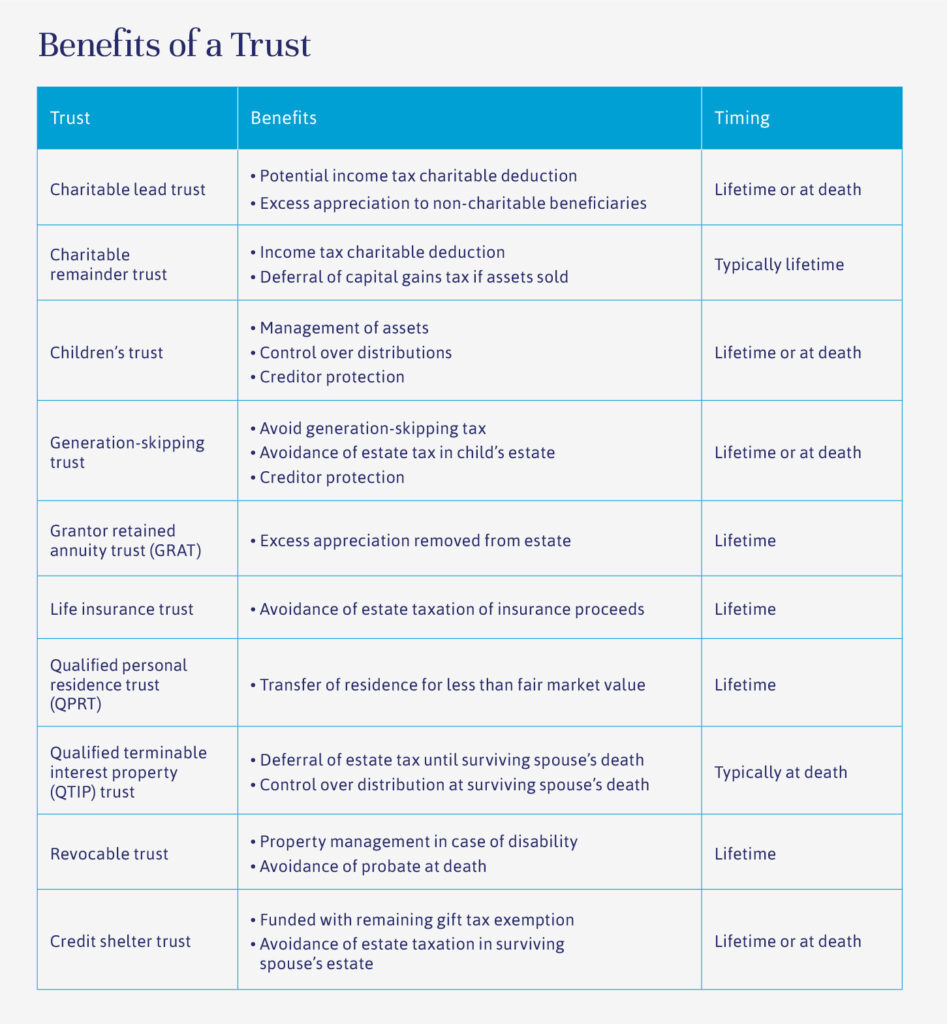
Independent Thinking®
Choosing the Right Trustees
January 28, 2016
One of the advantages of age is perspective. I’m further along the financial life cycle than many of my younger partners and able to voice the concerns of my generation – and the experience of a long career in wealth management – as we advise families on some of the most important decisions they will ever make. In our estate planning discussions, we ask our clients many of the same questions that I ask myself. Who will serve as a trustee for children and grandchildren? Should that responsibility go to a friend, to the children or other relatives, to a lawyer or accountant, or to an institution? Who will step into the grantor’s shoes as needed?
As we dig a little deeper, other questions come to mind. Of friends and family, advisors and institutional relationships, who has the experience to protect the assets from theft or the Bernie Madoffs of this world? To make the best investment decisions? To make sure that the trust income is properly reported and the appropriate tax returns are filed? And, just as important, who will provide the most effective counsel to children and grandchildren on financial affairs?
I started my career over 30 years ago as a trust officer, so I know well that a properly established, managed and administered trust will provide the most benefit to its beneficiaries. There’s a lot to consider, and the starting point is recognition that family circumstances can and will change. All trusts, especially those designed to last for two or more generations, need to have an element of flexibility to balance the intent of the grantor with the evolving needs of the beneficiaries.
Without a doubt, my family knows itself best. I don’t want one of my two children to serve as trustee for their sibling, however, as this could cause lasting damage to their relationship and affect their own children, as well as the family as a whole. (Indeed, that’s pretty much the last thing I want.) There are circumstances in which this approach makes sense, but they are relatively rare. Nor do I want to worry about replacing my long-term attorney or accountant if I appoint one of them.
Trust companies are more objective, of course, and a number pride themselves on their histories. But I know from personal experience that many trust companies have changed a great deal in recent years. I don’t want my beneficiaries to feel that the institution I chose had become impersonal, bureaucratic or that it charged too much. Beneficiaries should have the right to replace the trustee – and without having to pay any termination fees.
In the end, I chose an individual and an institutional trustee (Evercore Trust Company, N.A., a close affiliate of Evercore Wealth Management) to co-manage my own family’s affairs. My beneficiaries will have, to my mind, the best of both worlds, with the close understanding of their relative and the support of an experienced, flexible institution. It’s important to note that the individual will also benefit from the relationship with the institution: Becoming a trustee is a big responsibility and I want to do what I can, while I can, to ease that burden for the individual I chose. The individual co-trustee, on the other hand, will provide a level of governance over the corporate trustee, and will have the power to remove and replace the corporate trustee should it be necessary to do so.
My own affairs are relatively straightforward. Many of our clients have more questions to address, including the future ownership and management of family businesses or shared assets, such as vacation homes, concentrated stock holdings, a private business or a valuable art collection. In our firm’s collective personal trust and fiduciary experience, we’ve probably seen it all. Often, they have more personal issues to consider, such as protecting assets from the potential ravages of divorce or fairly managing the conflicting interests in families with relatives from previous marriages or special needs.
For these clients, a flexible institutional trustee is usually a component in the right solution. Evercore Trust Company can act as a sole trustee or joint trustee and is able to manage a wide range of assets for families across the United States.
The right trust, structured, managed and administered the right way, can do much to resolve pressing estate planning questions and prevent future conflicts, now and among future generations. That’s a legacy worth leaving.

Jeff Maurer is the CEO of Evercore Wealth Management and the Chairman of Evercore Trust Company. He can be contacted at [email protected].
